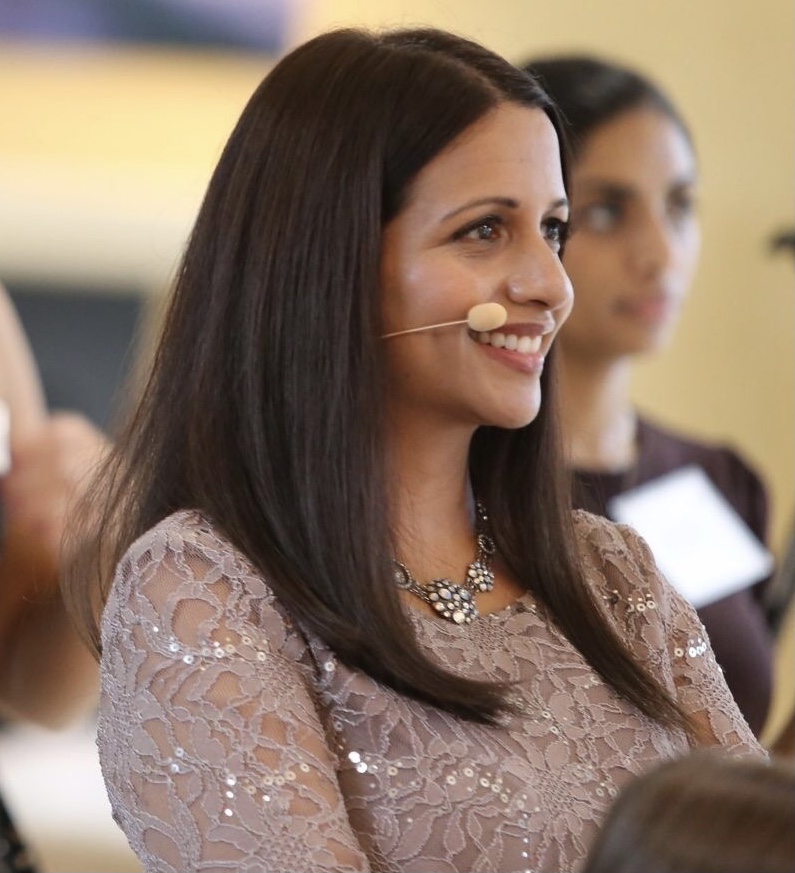By Rachana Bhide
Now that 2017 has kicked off, I am sharing a personal resolution to make an impact on strengthening the support for male allies (also referred to as male advocates, or as I refer to them in my work, “male champions”) in a meaningful way; building upon my research at Columbia University about how to engage men in diversity.
One of my calls to action is around building confident champions. While conducting my research I spoke to a lot of men about their involvement in diversity initiatives, and I also spoke to a lot of women who were specifically interested in this topic. It struck me, in the same way that it struck me to hear the men’s stories; that many women had compelling stories of their own, specifically about male mentors, friends or colleagues who had visibly given them coaching, guidance and inspiration to follow their talents.
As I dug deeper I found that when it came to women who readily identified a strong champion in their journeys, one element was missing: Feedback. That is, most women at best thanked their mentor regularly (at worst, gave no feedback), but in all instances there was no intentional discussion to share with the male champion, the specific impact that champion’s behavior had made on her as a female in the workplace.
Here is why this intentional conversation is important. I will illustrate it through a story:
Why Even “Great” Allies Need to Know
I’ve been supporting two professionals (a male and a female) in their personal grassroots mission to build male champions in their company’s technology department. They found three additional male “allies” who had expressed interest in being part of the initial task force. This is an organization I’ve previously worked with, but it was the first time I would hear the stories from the men themselves (none of whom currently hold leadership positions, but are indeed poised to be strong change leaders through their passion for this topic).
After they shared their stories of why they were passionately committed to diversity and gender equality, I asked each of them, somewhat off the cuff:
“How effective, on a scale of 0 to 10, do you think you are as an ally?” I purposely didn’t give them a scale or criteria; I merely wanted to hear their initial reaction.
Here were the responses:
“0” : From the man who was organizing the entire effort.
From the other three: “5”, “2 or 3”, and “6” (the gentleman who said 6, said “I call people out if I see bad behavior!”)
Now, I had purposely not given them a scale — no set of criteria that would help them determine if they were a “1” versus a “10” — because I wanted to hear their instinctive reaction in their own beliefs. And what I found in this small but compelling example: four of the most proactive men in this organization, the men who are quietly driving a task force committed to promoting gender equality… don’t have the belief that they are making a difference.
The Important Role of Intentional Conversations
So I asked them. “What would make a difference in your self-assessment?”
They didn’t reply at first. So I asked another question. “If a woman told you,” I asked, “that your behavior was making an impact on her in a positive way… would that help?”
They nodded their heads vigorously. “Absolutely!” they said. Then they continued by saying that anything to help them see that there is visible progress, affirmation that they are saying the right things, and reinforcement of specific behaviors that have helped advance the cause, would greatly build their confidence in their efforts.
This is why the intentional conversation is so important. It is not to be confused with a “pat on the back”; rather, it offers a discussion about those specific and measurable behaviors that have made a positive difference. Then, men can internalize the behaviors, commit to replicating them, and enlist other champions by sharing their stories and tactics. I realize it sounds simple but this call to action really is that easy: for women and others who have been supported by a champion at some point in their careers: Just tell them.
This is why I have launched the Corner of the Court project, a visible platform that allows women to create an intentional acknowledgement, and also inspire other women, by sharing how a male ally has helped them. It is a public way of giving men the confidence in their behaviors, illustrating specific stories and examples to which men and women alike can relate. Sharing stories of success is important to both men andwomen, as we work side-by-side, raise strong daughters and sons, and volunteer in our communities for a better future.
Won’t you join me in building confident male allies? If you have a story to submit, I invite you to contact me on LinkedIn directly. As attested to by the men themselves, your story and recognition will make a difference.
Here’s to building confident champions and allies in 2017!
(Note: There is a whole body of psychological research around self-efficacy — the strength of one’s belief in one’s own ability to complete tasks or achieve goals; which relates directly to this article. I have not included this research directly in this business-focused example, but if you would like to read more I recommend reading Dr. Albert Bandura).


